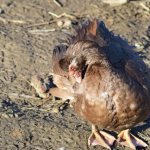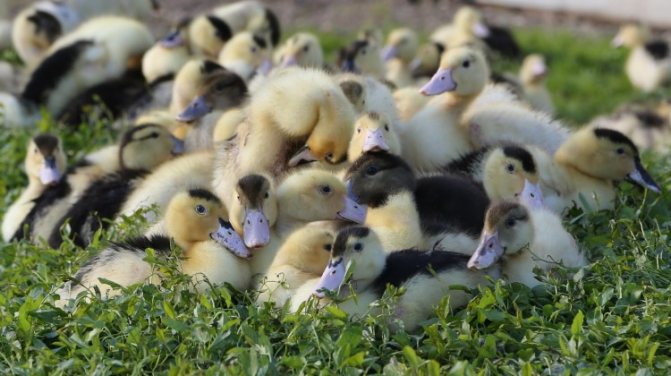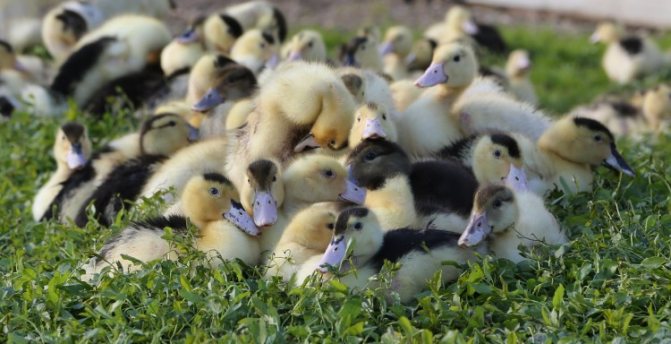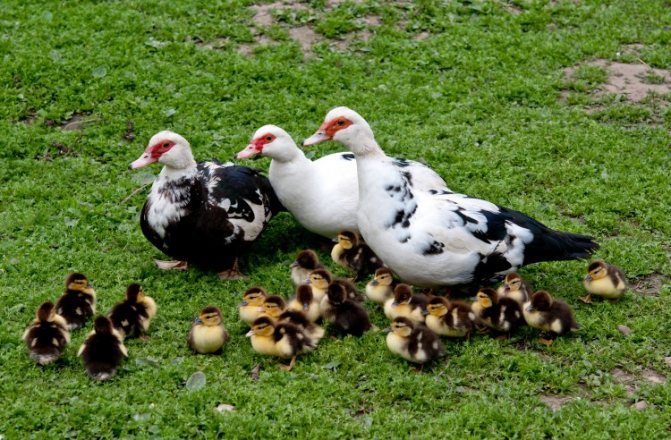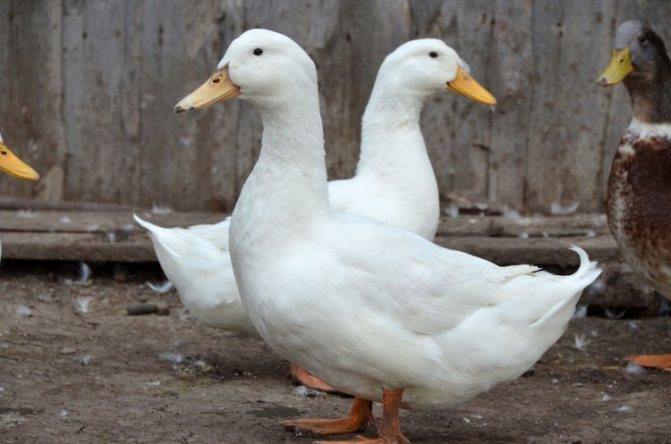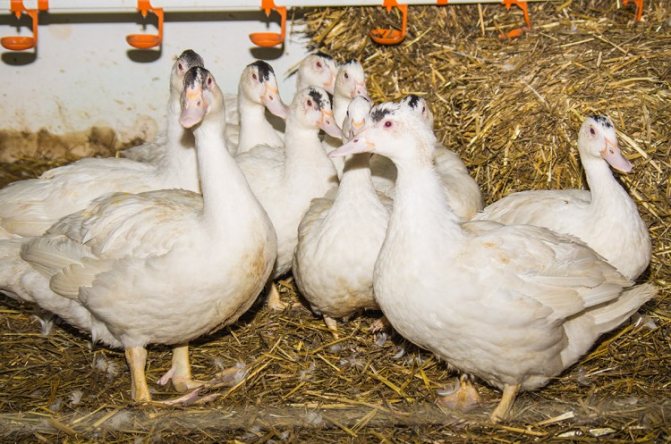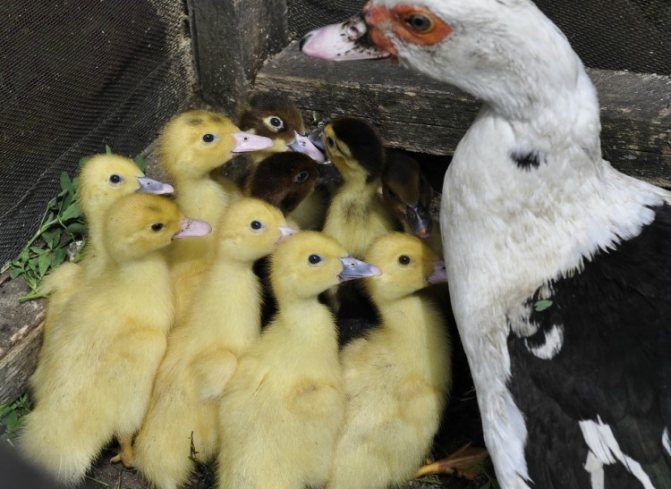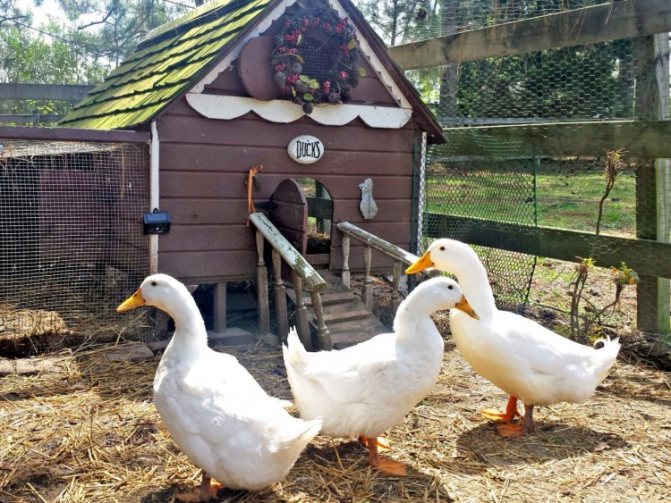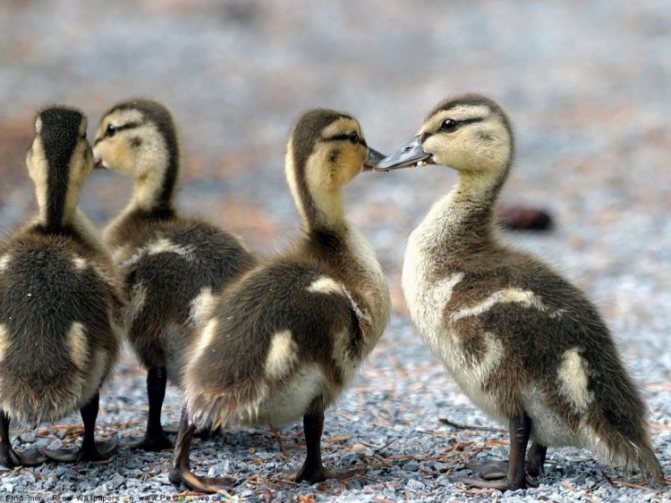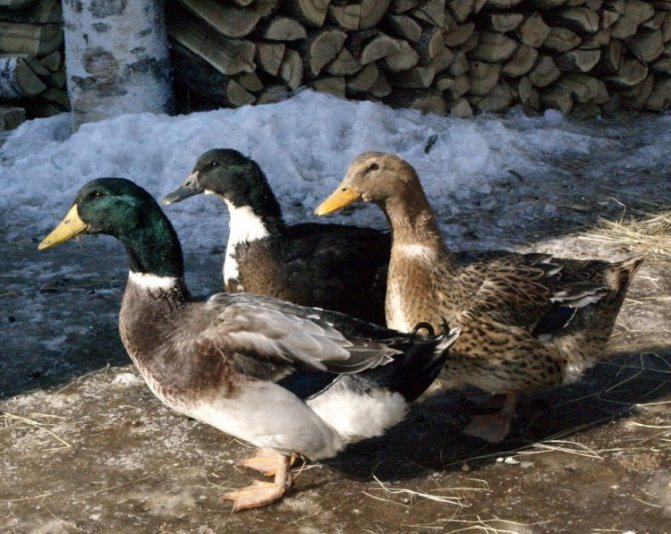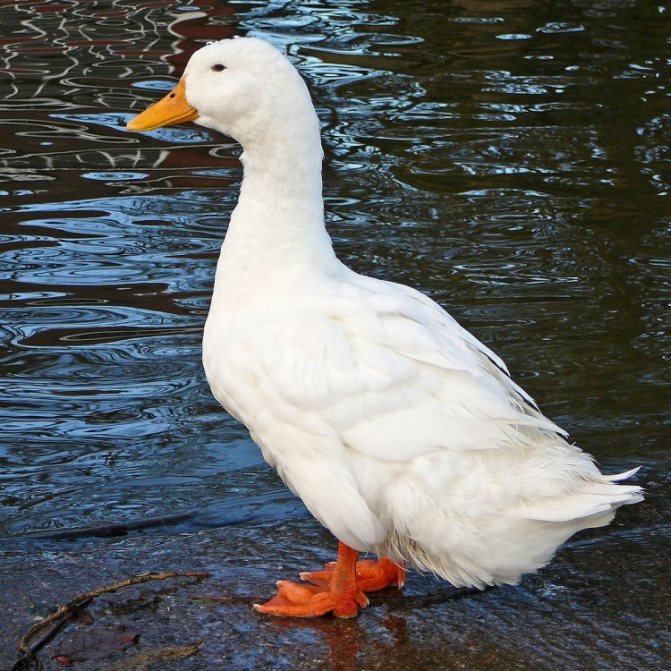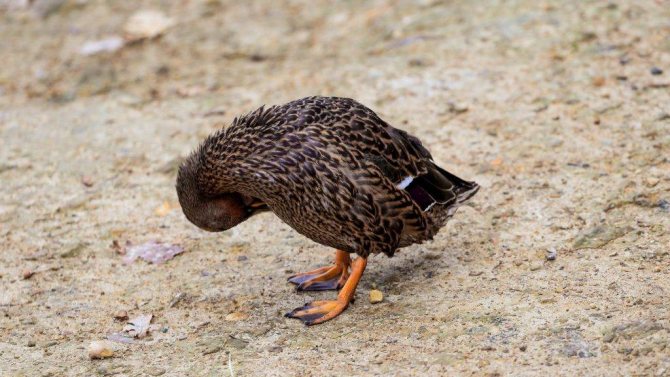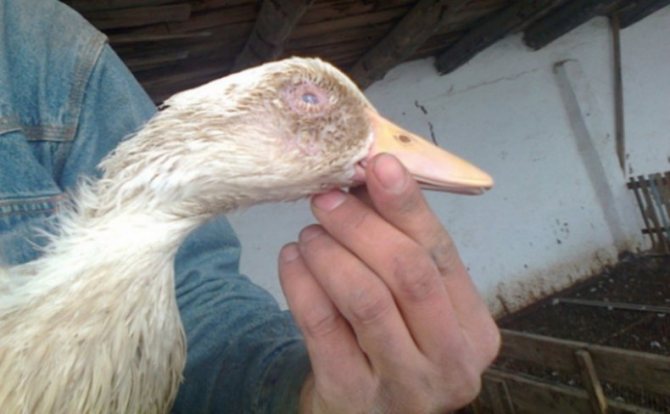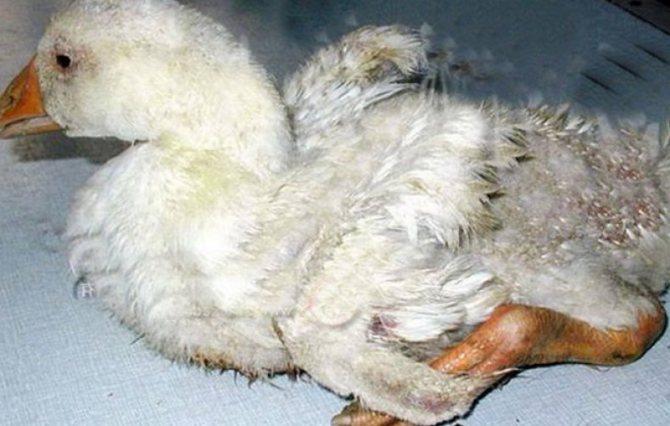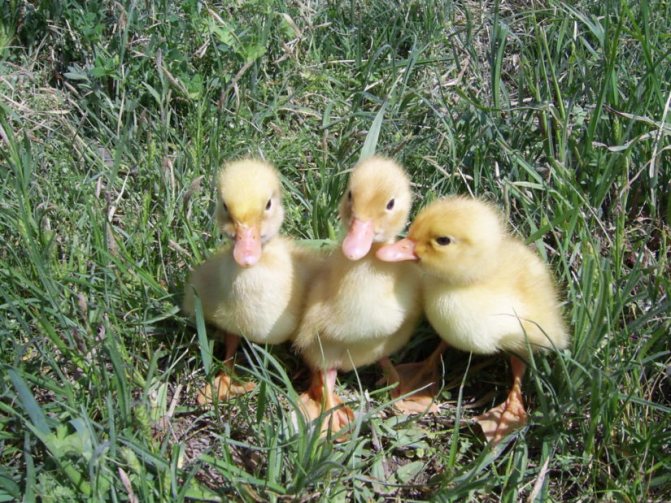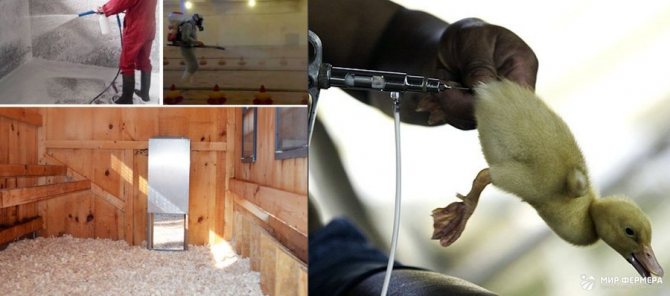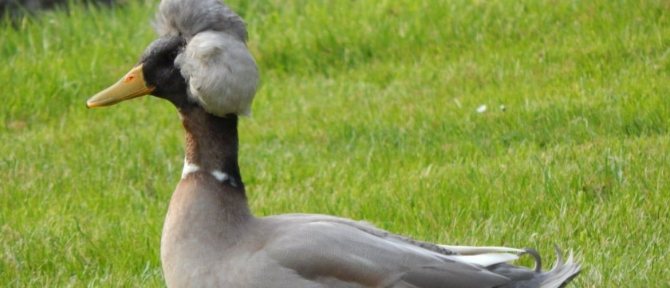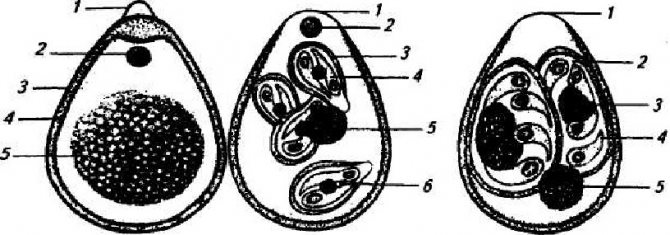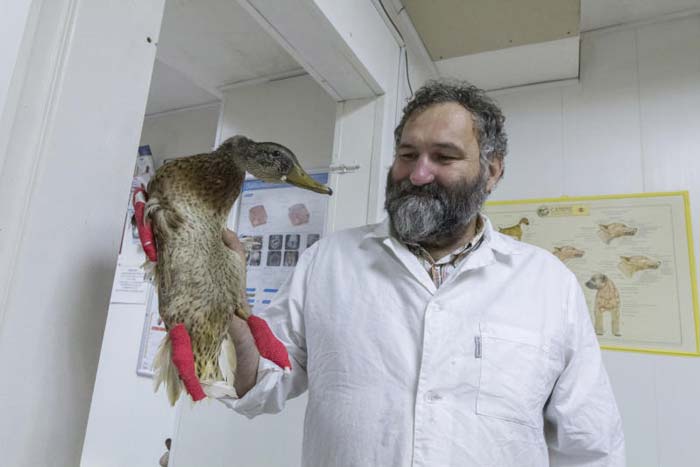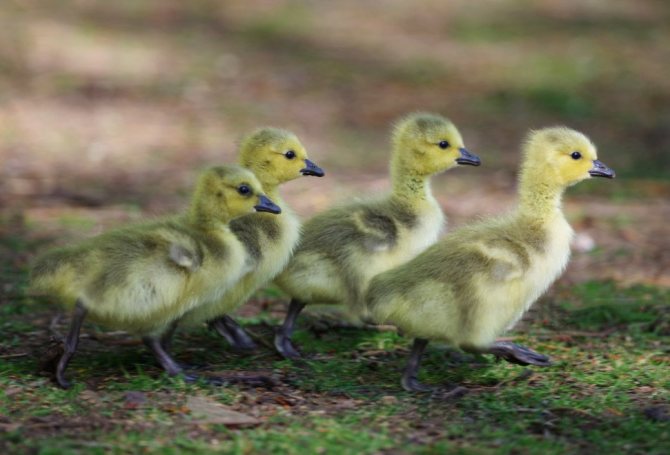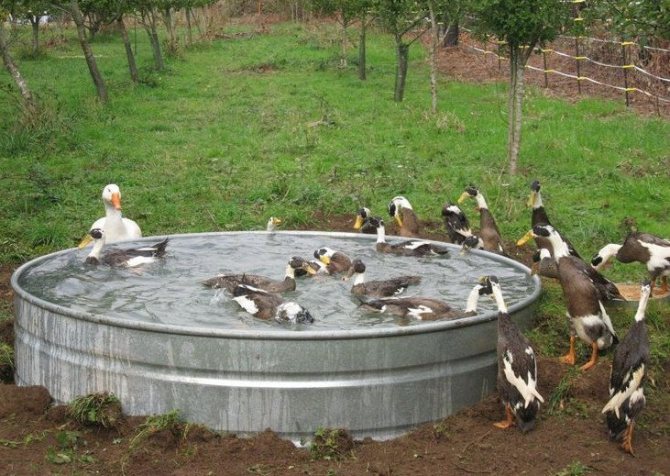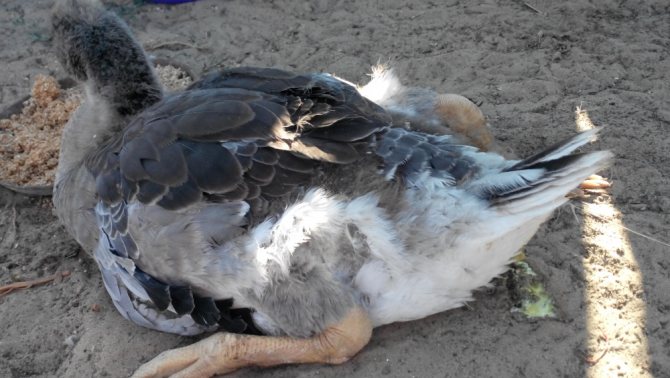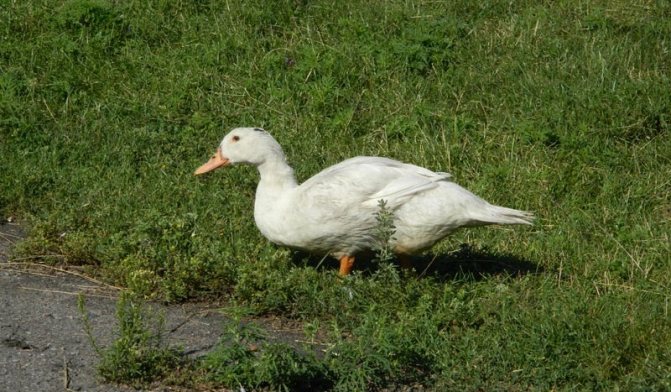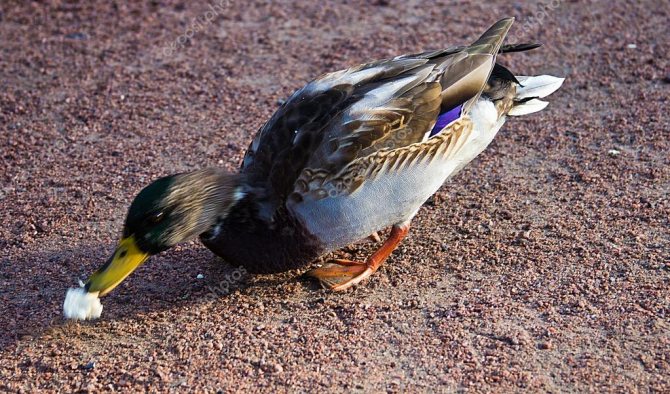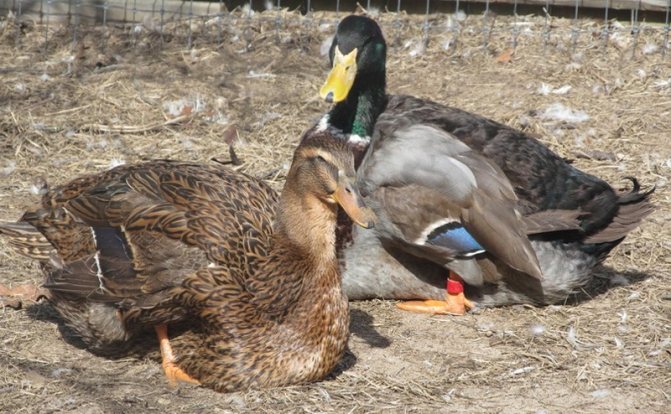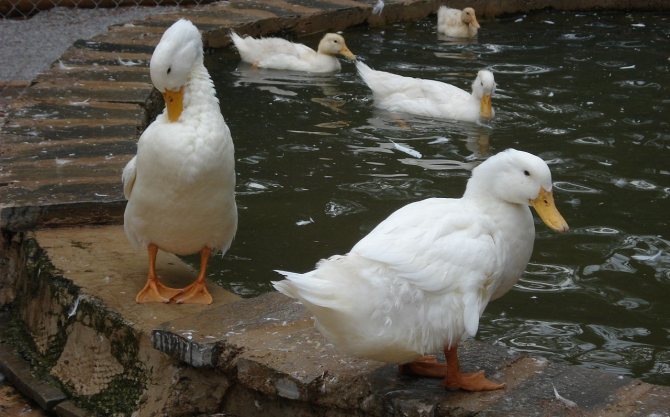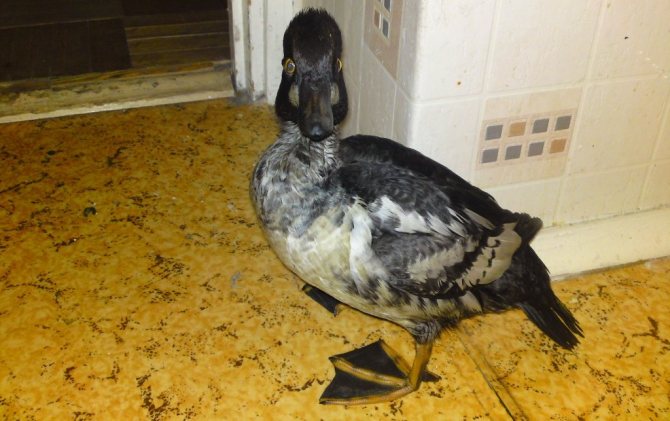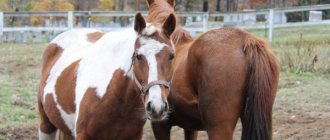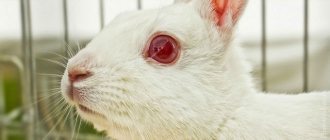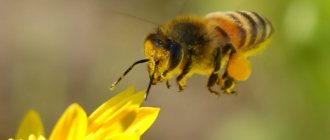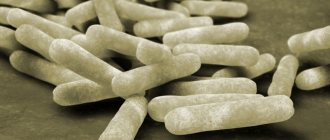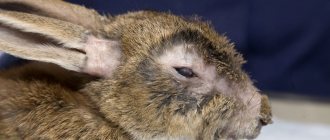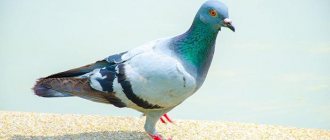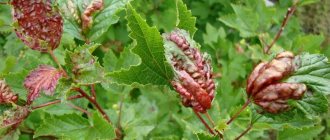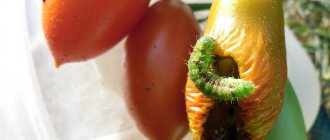Apathy, refusal to eat, diarrhea, changes in appearance are the first signs of a serious illness in a duck. The causes of the onset of the disease can be a viral or bacterial infection (usually ducks become infected from wild animals or sick relatives), improper care or insufficient disinfection of the premises.
In this case, each poultry breeder must determine what exactly the duck is sick with, and immediately begin treatment, having previously isolated the animal.
All diseases are divided into three groups:
- contagious or infectious (diseases caused by bacteria or viruses transmitted from wild and domestic animals);
- non-infectious (diseases caused by violations of the conditions for keeping ducks: insufficient disinfection of equipment and premises where birds are kept, too high or low temperatures, high humidity in the duck house; unbalanced diet);
- parasitic (diseases arising from food or air contact of ducks with wild or domestic animals infected with internal or external parasites).
Infectious diseases
Diseases are mainly caused by poor living conditions and insufficient feeding. Little ducklings are especially susceptible to adverse conditions. They weaken and become available to various diseases. If you observe them every day, you can see the onset of the disease by their external signs. Healthy ducklings are mobile, eat well, drink, and swim willingly.
Sometimes it is not clear why the ducklings die. But even walking them in damp weather can be the cause of death. Little ducklings do not tolerate hypothermia very well during the first month of life. It is necessary to monitor the walking area, if necessary, cover it with straw. There should be no muddy puddles, potholes, holes.
In order to properly treat ducklings, you need to know what diseases they have. All duck diseases can be divided into infectious (contagious) and non-infectious (non-infectious).
Avitaminosis A. The mucous eyes of ducklings dry up, become covered with sores, fluid oozes from the nostrils. Ducklings eat and drink poorly, become lethargic. To cure them, you need to add vitamin A and a few drops of fish oil to the water for 2 weeks. A good preventive effect is the addition of herbal flour to food. 2. Avitaminosis E.
The ducklings begin to have convulsions, the heartbeat becomes rare, the eyes are closed. They become lethargic and have no appetite. For cure it is necessary to add tocopherol to the food drop by drop. This phenomenon is prevented by grass flour, hay flour, milk waste. 3. Cuticulitis. This disease in ducklings occurs up to one month old.
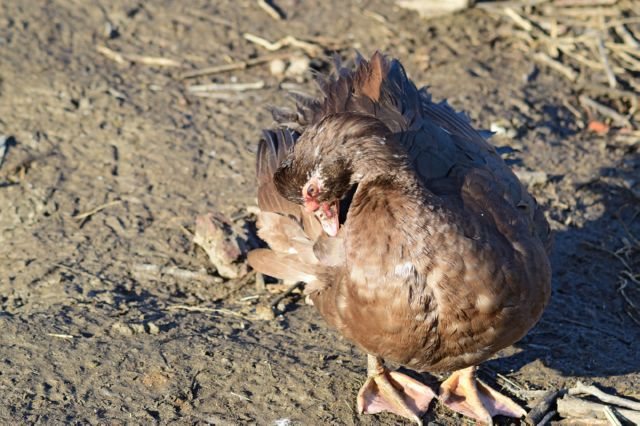
Its main symptom is dark-colored diarrhea, in which there are undigested parts of the food. Ducklings also become lethargic, inactive. It is necessary to improve feeding, add mineral and vitamin supplements. It is good to make a weak manganese solution and give it to the ducklings to drink. 4. Pecking birds (cannibalism).
Prevention of diseases in young animals is much cheaper than its treatment. Young ducklings are best kept separate from adult ducks and other birds. The weak should be separated into a separate company, and the sick should be kept in isolation.
They are the most dangerous, as they often lead to the death of the entire duck brood. The following diseases are quite common: - viral hepatitis. Ducklings are sleepy, lethargic, fall on their backs or on their side. Only vaccination and disinfection of the premises helps. - pasteurellosis, or cholera. There are no effective treatments.
In the initial stage, with varying success, they are treated with drugs - sulfonamides. - aspergillosis. It is caused by pathogenic molds and acts on the respiratory system. It flows quickly, half of the ducklings die. This happens with dampness, dirty litter, moldy forage. - salmonellosis, or paratyphoid.
Only by responsibly approaching the business of breeding ducklings, one can hope for a good result. There is no need to save on feed, vaccinations, medicines, disinfectants. And then the breeding of ducks will be profitable and will not make you regret that they took up it.
Diseases of ducks are divided into 3 groups. The first group includes diseases that are caused by infection. They are the most dangerous due to the fact that they are transmitted by airborne droplets. If assistance is not provided in a timely manner, you can lose the entire livestock. The second group includes diseases of a non-infectious nature.
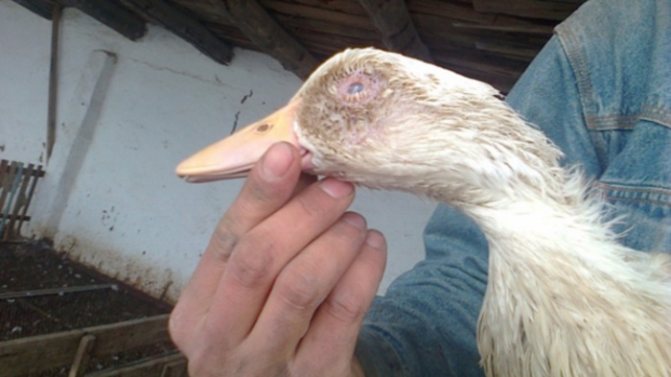

Among the diseases of an infectious nature, the following are most common:
- aspergillosis;
- cholera;
- coccidiosis;
- duck plague;
- paratyphoid.
The most common noncommunicable diseases are:
- avitaminosis;
- poisoning;
- cannibalism.
Ducks are parasitized by:
- worms;
- puffy eaters;
- ticks;
- lice.
All diseases are caused by different pathogens. Because of this, the treatment regimen for each disease is individual.
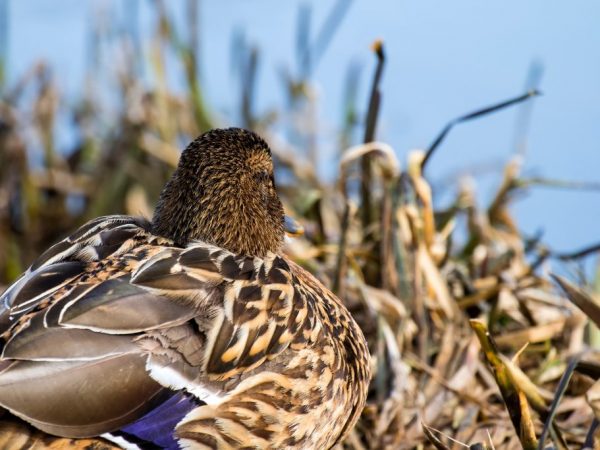

Infectious diseases are dangerous, since they have a rapid spread to other individuals and can be fatal even before the provision of medical care
Aspergillosis
Aspergillosis is caused by pathogenic fungi. These fungi live both on the surface of food products and on the surface of building materials. The bird is constantly in contact with this microorganism. With good ventilation in the room and timely cleaning of the feeders, the risk of infection with aspergillosis is minimized.
We suggest you familiarize yourself: Indo-woman does not sit on eggs what to do
If the room is rarely ventilated, food with mold is stored in the chicken coop, the number of harmful spores in the room increases. With each breath, part of the spores enters the bird's respiratory tract, which leads to the appearance of a dangerous disease. It develops in different ways. In some birds, symptoms of the disease appear within a few days, while in others, the disease develops within 1-2 years.
Non-communicable diseases in ducks are less dangerous and less likely to be fatal. The reasons lie in non-compliance with the content standards.
Avitaminosis
Birds rarely die of vitamin deficiency. The causes of the disease are clear from the name - it is a lack of vitamins. Less commonly, it is triggered by insufficient sunlight. Depending on which vitamins are lacking, several types of the disease are distinguished. Common signs for all varieties are lack of appetite, decreased egg production, slow growth of young stock.
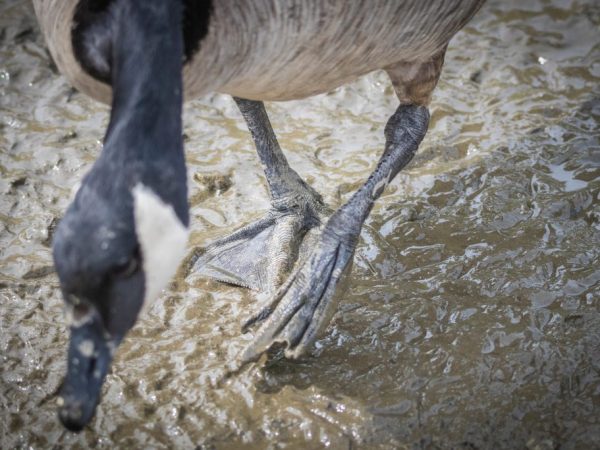

Treatment for ducklings' disease involves enriching the diet with certain foods that contain essential vitamins. Also birds are given mineral and vitamin complexes. The veterinarian will be able to determine the type of disease.
Poisoning
At home, birds can be poisoned by pasture, detergents in the poultry house, or poor-quality feed. The fact that a duckling is sick is judged by the appearance of convulsions, vomiting, lack of appetite and thirst.
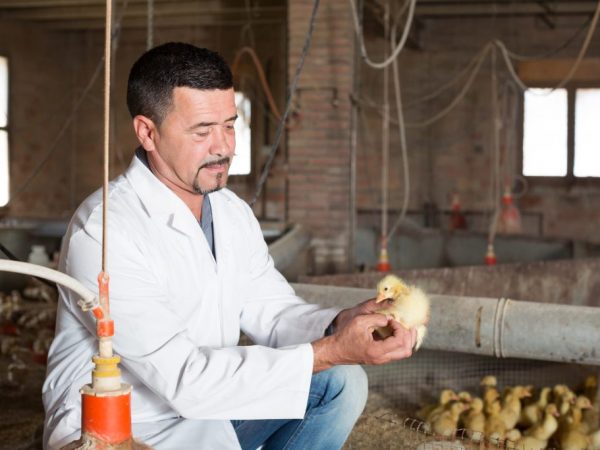

The duck is sealed with activated charcoal diluted in warm water, and laxatives and enemas are given.
Treatment is easy to do at home.Activated carbon is diluted in warm water. The resulting mixture is fed to the bird. Ducklings can be given a laxative and given an enema.
Cannibalism
Among all diseases, this one has specific symptoms. The birds begin to pluck feathers and show aggression towards their relatives, they go bald. The disease manifests itself in both small and adults. Aggressive ducks are slaughtered, and the affected individuals are set aside until they are fully restored. Cannibalism manifests itself if the birds have an unbalanced diet or are crowded.
Other non-infectious diseases include omphalitis, esophageal obstruction, yolk peritonitis, cuticulitis, ammonia blindness, prolapse of the oviduct, and cloacitis. All of them are caused by inappropriate conditions of detention. Ammonia blindness leads to loss of vision and is caused by an excess of ammonia in the air.
Most often, ducks are parasitized by feather eaters and worms. Parasitic diseases of ducklings appear due to non-compliance with sanitary and hygienic standards. The presence of parasites is indicated by a decrease in appetite, a decrease in egg production and lethargy. At home, birds are treated with medications or folk remedies.
Continuation: diseases and ailments of ducklings. Loss of orientation and throwing the head back.
Why do ducks fall to their feet? The reasons. How to help?
Diseases in musky ducklings, prevention
The duck fell to its feet // Treatment // Life in the village !!!
This group of poultry diseases is the most dangerous due to its rapid spread to other individuals. And also if a duck gets sick with an infection, then it can die after a few hours without waiting for drug treatment (especially for little ducklings). It is worth remembering that diseases of ducks can be transmitted to humans. Keep children, old people, people with weakened immunity (especially due to previous infection) away from sick animals.
Classification of infectious diseases:
- pullorosis or bacillary white diarrhea;
- viral enteritis or duck plague;
- aspergillosis;
- salmonellosis or paratyphoid fever;
- colibacillosis;
- pasteurellosis or cholera.
The disease affects young ducklings, whose age does not exceed 14 days. Pullorosis in adult ducks is rare and occurs without characteristic symptoms, but deformation of the ovary occurs. There are two forms of the disease: acute (found in ducklings), chronic (in adult ducks and recovered young). The mortality rate in the acute course of the disease is 80%.
The infection is transmitted through water, food, bedding, equipment, and by airborne droplets. The incubation period in ducklings lasts from one to six days, in adults from four to five days.
We suggest you read: Tips for caring for a cat after spaying
What diseases are found in the genital area
Peritonitis in ducks
In the reproductive system of ducks, peritonitis is most common. The disease affects females, it is much less common in drakes. What can cause the development of the disease:
- cruelty when dealing with a bird;
- excess protein in the diet.
A duck with peritonitis experiences sharp cutting pains in the abdomen. The bird behaves restlessly, twitches, there are rarely convulsions. It should be said that peritonitis is not always cured, so more attention should be paid to prevention - to keep the house clean, to treat the ducks with love.
Diseases of the oviduct
In ducks, there is a disease such as prolapse of the oviduct from the anus, it is diagnosed only in females. The cause of the development of the disease is the birth of too large eggs, which damages the structure of the oviduct. The onset of the disease is indicated by diarrhea or, conversely, constipation, after which the oviduct gradually falls out. The owner can help the bird on his own at home, you just need to adjust the oviduct to its normal position.
To relieve pain, you can put a small piece of ice into the opening of the oviduct. This will reduce swelling, remove bleeding, if any. If after this it is difficult for the duck to rush, the hole is lubricated with any ointment, for example, petroleum jelly.
Common causes of disease in ducks
The bird is sick if the standards of sanitary maintenance are not observed.
Poultry farmers who have been breeding ducks for more than one year often face diseases of their wards. The cause of the disease can be:
- infections;
- fungal pathogens;
- lack of vitamins in the body.
Birds can often get injured during various squabbles in the herd or when meeting other individuals. Under all circumstances, the poultry farmer must correctly identify the cause of the duck's discomfort and take the necessary measures.
Note! Only by studying all the habits of ducks, often observing them, it is possible to establish whether they are healthy or sick. Most often, a sick bird looks dull, does not show activity and refuses to feed.
Before doing any action, it is recommended that a sick individual be isolated from the entire herd in order to observe her and make sure that she is not healthy.
Avitaminosis A in ducks.
Avitaminosis A is more common in ducklings. Their appetite disappears, growth is delayed, an inflammatory process of the mucous membrane of the eyes is traced, there is lacrimation, a runny nose; in mature ducks, egg production decreases; pigmentation of the legs, beak and skin becomes paler, the gait becomes unstable, the plumage ruffles.
The prevention consists in giving feed rich in vitamin A or carotene: carrots, fresh herbs - alfalfa, clover, nettle, grass meal, pine needles, pond vegetation (elodea, duckweed, hornwort), fish oil. The vitamin nutritional value of pond vegetation has not yet been well studied, however, it has been determined that with its introduction into the diet of avitaminosis birds, the general condition of ducks becomes sharply better.
Treatment
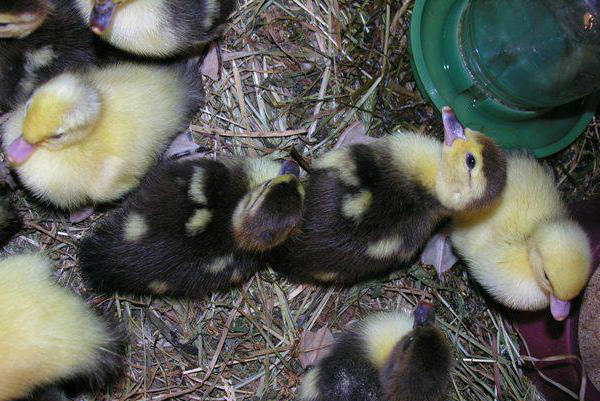

What should be done in all these cases to help your pets grow healthy and live long?
When chicks fall to their feet due to an attack of harmful insects, treatment most often consists of the use of a drug called Butox 50. It must be diluted with water and treated with all the young stock that you have on the farm. To prevent a new infestation of parasites, be sure to wash and disinfect the house.
In the case of a lack of vitamins, it is recommended to start giving pets homemade vitamins - green grass, fresh vegetables. Alternatively, today you can prefer purchased vitamin complexes that have a balanced composition. For your little ones to get a large amount of the important vitamin A, they should be fed with grated carrots, adding fish oil known for its nutritional properties to it for better absorption.
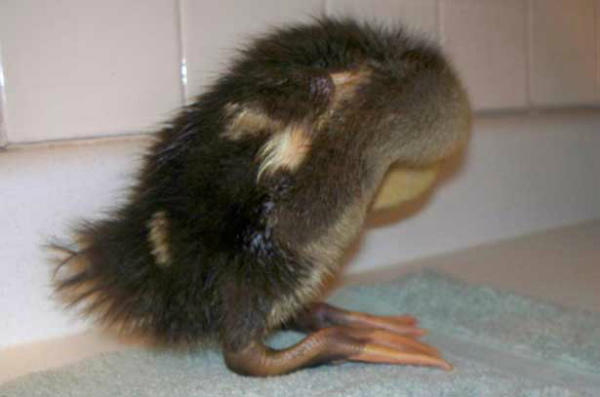

In case of calcium deficiency, which can provoke an improperly selected daily nutritional diet, supplements should be given to ducklings during treatment, in which this mineral is contained in full. These include natural sources of calcium such as bone meal and fishmeal, crushed chicken eggshells in any available way.
The body can get a large portion of selenium if you add ready-made vitamin and mineral complexes to their usual diet.
Treatment of infectious diseases, when they are diagnosed, begins with the isolation of diseased chicks from healthy ones in a separate room. In this case, a thorough treatment of the place in the poultry house where they were located is mandatory, since infections tend to be transmitted not only through direct contact, but also through fluff, feces, food debris.
Avitaminosis A in ducks.
Lack of vitamin D in feed causes the development of rickets in ducks, which is expressed in a disorder of mineral metabolism: poor growth, softening of bone tissues, weakness of the legs manifests itself in ducklings, deformation of bone tissues, the beak becomes elastic, like rubber; ducks lay eggs with weak thin shells.
For the prevention and treatment of rickets, fish oil, irradiated yeast and mineral feeds - shells, bone meal are included in the diet. Mature ducks and young animals must by all means be released for walking.
Lack of B vitamins in the diet gives rise to disorders of the nervous system in ducks: weakness of the legs, paralysis of the limbs, head, wings, throwing the head back, cramps of the limbs or the entire body. For prevention and treatment, feed the most rich in vitamins of group B feeds - sprouted grain, yeast, milk, wheat bran, herbs, etc.
Why ducklings fall to their feet, how to treat and what to do in general in such a situation
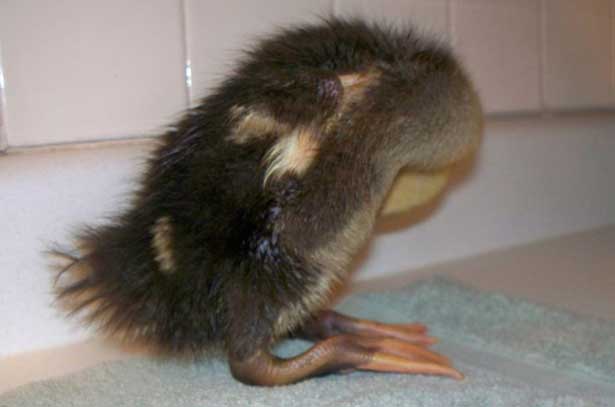

What is important when raising poultry? Properly feed her, maintain and treat her on time, and even better prevent diseases. Today we will talk about a problem that worries so many duck breeders: why ducklings fall to their feet and how to treat this misfortune. Often, such a death on the paws ends up very badly for ducks - right up to their death, so it is important for the owners to know what to do in this situation.
From the article you will learn:
- 1 Ducklings fall to their feet: possible causes
- 2 How to feed ducklings so they don't fall to their feet
- 3 What to do if ducklings fall to their feet as a result of an invasion of parasites
- 4 Summing up
Ducklings fall to their feet: possible causes
The difficulty in finding out the reasons why the ducks fell to their feet is that these birds are characterized by weakness in the paws with many diseases. Therefore, just to say what exactly happened to the ducklings who suddenly fell on their paws offhand is quite difficult. In addition to the very fact that the duckling cannot rise to its feet, it is necessary to examine the chick to identify additional signs that would help establish the correct diagnosis.
Of course, the best option would be to take a few ducklings to the veterinarian or invite a specialist to your home. The doctor will examine the ducklings, perhaps perform an autopsy of a particularly weak one, diagnose and prescribe treatment. But if it is impossible to invite a veterinarian for some reason, consider the following.
Most often, ducklings fall to their feet for two reasons. The first is unhealthy nutrition
ducklings fall to their feet for two reasons
(lack of vitamins and trace elements), the second - the chicks suffer from external or internal parasites. Sometimes ducklings fall to their feet with infectious diseases, for example, on the forums I met complaints from poultry farmers, in whom ducklings fell to their feet with such a disease as salmonellosis. In the first case, adjusting the diet will help, in the second - antiparasitic treatment, in the third, you need to consult a doctor for the appointment of appropriate antibiotics.
How to feed ducklings so they don't fall to their feet
The food you give your ducklings may be low in minerals and vitamins. If, in addition to the fact that the ducklings have fallen to their feet, they have such signs as: lethargy, growth retardation, inflammation of the eyes, excessive thinness, ducklings pull the fluff out of each other's heads - they most likely have vitamin deficiency and need to take measures.
In the first week, ducklings need to be fed with a balanced feed with vitamins and microelements. It is best to give them so-called starter food for ducklings or add special premixes. However, this may not be enough.
From the third day, ducklings need to be accustomed to grass. At the beginning we try to give the kids nettles. It is rich in vitamins and is well absorbed by chicks. Then we give euphorbia and dandelion leaves, sometimes dill, and later we introduce other greens into the diet.
The herb should be introduced gradually, starting at 10% of the total diet and increasing to 50%. From the second week, you can give the ducklings a mash. The composition of the mash is best to include compound feed, crushed barley, fish oil, chalk, finely chopped grass.
From the third week, compound feed should be excluded from the mash, and the proportion of grass, on the contrary, should be increased to 50% of the diet. You need to feed the ducklings 4 times a day, and between feeding still give greens, preferably plenty. It is especially important to provide greens if you feed your ducklings exclusively with starter food. Whatever the manufacturers write on the packaging, natural food cannot be excluded from the poultry diet. Moreover, additives are important if you are transferring ducks from a starter feed to a regular feed or grain: during the transition period, the feed becomes poorer in vitamins, the duck's body is rebuilt and the stabilization of the nutrient content is extremely important.
If the ducklings fall to their feet, adding ground eggshells, shells, bone meal, finely grated carrots and fish oil to the feed can help. These supplements will compensate for the lack of calcium and vitamin A. Also, if possible, it is good to add cottage cheese and boiled eggs to the food of ducklings from time to time. This will provide the young stock with the necessary proteins and calcium.
When the chicks become older, you can enter the leaves of young corn, grated zucchini, pumpkin, boiled potatoes, mixed with mixed feed into the diet. True, with pumpkin and zucchini, it is better to be careful too. You should not transfer the bird only to this type of sack (many poultry breeders sin this). It is just such monotony that can lead to the fall of the ducks on the legs.
What to do if ducklings fall to their feet as a result of an invasion of parasites
The second reason why ducklings fall to their feet is that your birds are suffering from parasites. It could be like
ducklings
external parasites, and internal - worms. In the fight against this scourge, both timely treatment and prevention are important. In this case, you cannot do without medical intervention.
Outdoor poultry parasites or ectoparasites are arthropods that live on or inside the skin and feathers (mites, down and feathers). They are transmitted from bird to bird and especially often appear in small poultry houses.
Examine the bellies and wings of the ducklings to identify ectoparasites. If you see an unnatural condition of the feather and skin - take action. To eliminate them, you need to treat the room in which the ducklings are kept with anti-ectoparasitic drugs, and the chicks are added special medicines to their drink or feed, or they are treated with special solutions externally.
Internal parasites in poultry are also removed with drugs. For their appointment, it is advisable to contact a veterinarian. Folk remedies in this case, it is better not to use, so as not to harm. Moreover, modern drugs are quite effective.
Important note! If you use any drug to remove parasites, proceed strictly as directed by your doctor or the instructions attached to the drug. Do not vary the dose as you see fit, as much as you would like to speed up the result. Preparations of this class are toxic and amateur performance can result in the death of the bird.
For the prevention of parasites, you need to ensure that the ducks are not too crowded, as well as that the feeders and drinkers are clean. This is especially important in hot weather, because moisture plus heat is the optimal breeding ground for parasites and fungi. Sometimes you can do prophylactic antiparasitic treatments for cells and poultry.
Pecking and plucking of feathers from ducks.
Pecking and plucking of feathers in adult ducks and young animals are caused by a lack of protein, minerals, vitamins and poor housing conditions (overcrowding, dirt, humidity, low ventilation of the room).With poor provision of ducks with dry bedding, their plumage becomes dirty, disheveled, they often clean their feathers, treat them with fat and irritate the coccygeal gland, feathers near the gland fall out, some of them break, blood appears, the lower back is exposed.
In order to avoid these defects, it is necessary to provide adequate nutrition for ducks, paying attention to meeting the needs for proteins, mineral feed and vitamins, primarily due to fresh field and pond greenery. Do not allow overconsolidation of poultry, it is necessary to eliminate the humidity in the room, to provide access for ducks to walk. When pecking and plucking of feathers occurs, the diseased bird is set aside, the most aggressive one is eliminated.
Pasteurellosis or cholera in ducks.
Pasteurellosis, or cholera, is an infectious disease that affects all types of poultry and all age groups, but young animals fall ill very often. Pasteurellosis in ducks takes place in two forms: acute, which is determined by the inflammatory process of the serous and mucous membranes of internal organs, and chronic, when the process is located in some organs, joints and mucous membrane of the upper respiratory tract.
We suggest that you familiarize yourself with: Nickname options for black cats, boys and girls
The source of infection is infected or recovered poultry (bacillus), sick pigs, rabbits, sheep and cattle; vectors of pasteurellosis are rodents, cutaneous parasites of farm birds. Infection occurs with food and drinking water, as well as through tick bites.
Rasklyov (cannibalism)
Feather pecking is often manifested after the introduction of a new group of individuals into an already established herd. At this moment, the birds begin to compete with each other, defend their territory, and as a result, weaker individuals inevitably suffer.
Therefore, replanting should take place gradually, taking into account the hierarchy. It is not necessary to keep individuals of different ages together, and the largest and most aggressive ones should be transplanted separately from the rest of the herd.
The problem of cannibalism in ducklings should not be underestimated, as plucking feathers and skin on most of the body often leads to the death of young animals. Therefore, birds that are injured should be immediately isolated and their wounds treated with an antiseptic.
Pecking the wings of ducklings: video
Hepatitis in ducks.
Ducks hepatitis is an infectious disease that is accompanied by severe liver damage. Viral hepatitis in ducklings is characterized by a rapid acute continuation of the disease. Youngsters become sleepy, sit with their heads and wings down, breathe hard. Subsequently, the ducklings fall on their backs or on their sides, convulsively remove their heads and immediately die.
In order to prevent viral hepatitis, the premises are thoroughly cleaned and periodically disinfected, and rodents and insects that are capable of carrying the causative agents of this disease are fought.
What do ducklings get sick with?
The most common diseases of ducklings:
- viral hepatitis;
- salmonellosis;
- cholera;
- aspergillosis;
- lack of plumage.
All of these diseases in young animals cause mortality in 50–80% of cases. Treatment generally does not give results, so it is better to immediately send sick individuals for slaughter.
Find out more about what ducklings are sick with and how to treat them.
All healthy ducklings should be immediately quarantined, after preventive treatment, vaccinated and properly cared for.
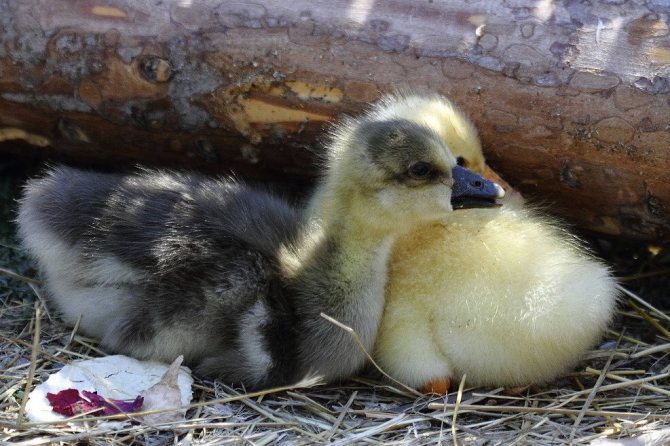

Helminthiasis and other parasitic diseases of ducks
Helminthic diseases
Ducks become infected with worms through water or food. Parasites spread throughout all internal organs and disrupt their activity. The infection spreads very quickly throughout the herd.
Symptoms of worm infestation:
- weak immunity;
- decrease in egg production;
- lethargy;
- weight loss;
- plumage becomes dull;
- with a strong invasion, diarrhea begins.
Little ducklings often suffer from worms.
Treatment for helminths is difficult and not always effective. More benefit will be the prevention of helminthic diseases.
Echinostomatidosis
The disease is caused by infection with trematodes that parasitize the intestines of ducks.
Infection symptoms:
- the state of the birds is depressed;
- lethargic, apathetic behavior;
- weight decreases;
- diarrhea.
Treatment is carried out with the drugs "Fenasal" and "Bithionol". After three days of quarantine, they are transferred to more favorable conditions.
How to diagnose
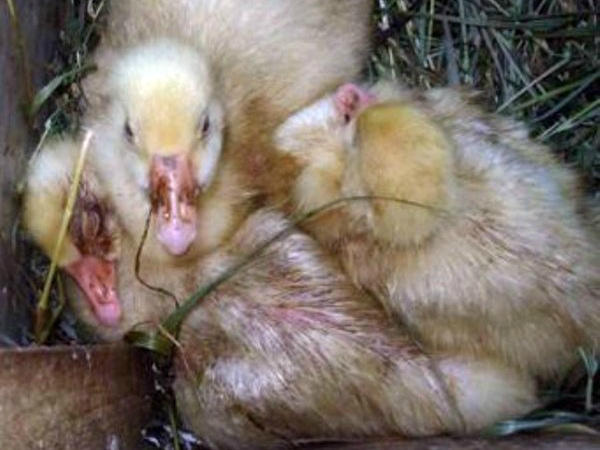

We have already figured out why ducklings fall on their paws and most often die. Practice shows that even experienced breeders cannot always make a correct diagnosis for pets. It is always best not to take risks and call a veterinarian who will conduct an examination, identify the causes and recommend adequate treatment. But what to do before his arrival? You can conduct a preliminary diagnosis yourself by examining the kids.
You can suspect the presence of parasites in their plumage if you check the condition of the abdomen and under the wings. Call your doctor immediately if you find fleas or lice. It is possible to diagnose a lack of calcium if the ducklings grow poorly, are inactive, and there are problems with normal plumage.
Pronounced symptoms help to diagnose the presence of extremely dangerous infectious ailments in chicks, if, in addition to settling on their paws, your wards began to fall out feathers, pus began to stand out, body temperature rose, diarrhea appeared, there is a suspicion of tuberculosis and other diseases. When the ducklings sit, falling on their limbs, their eyes are closed, and their breathing is rapid, diarrhea appears - perhaps you are dealing with a bloated goiter or catarrh.

